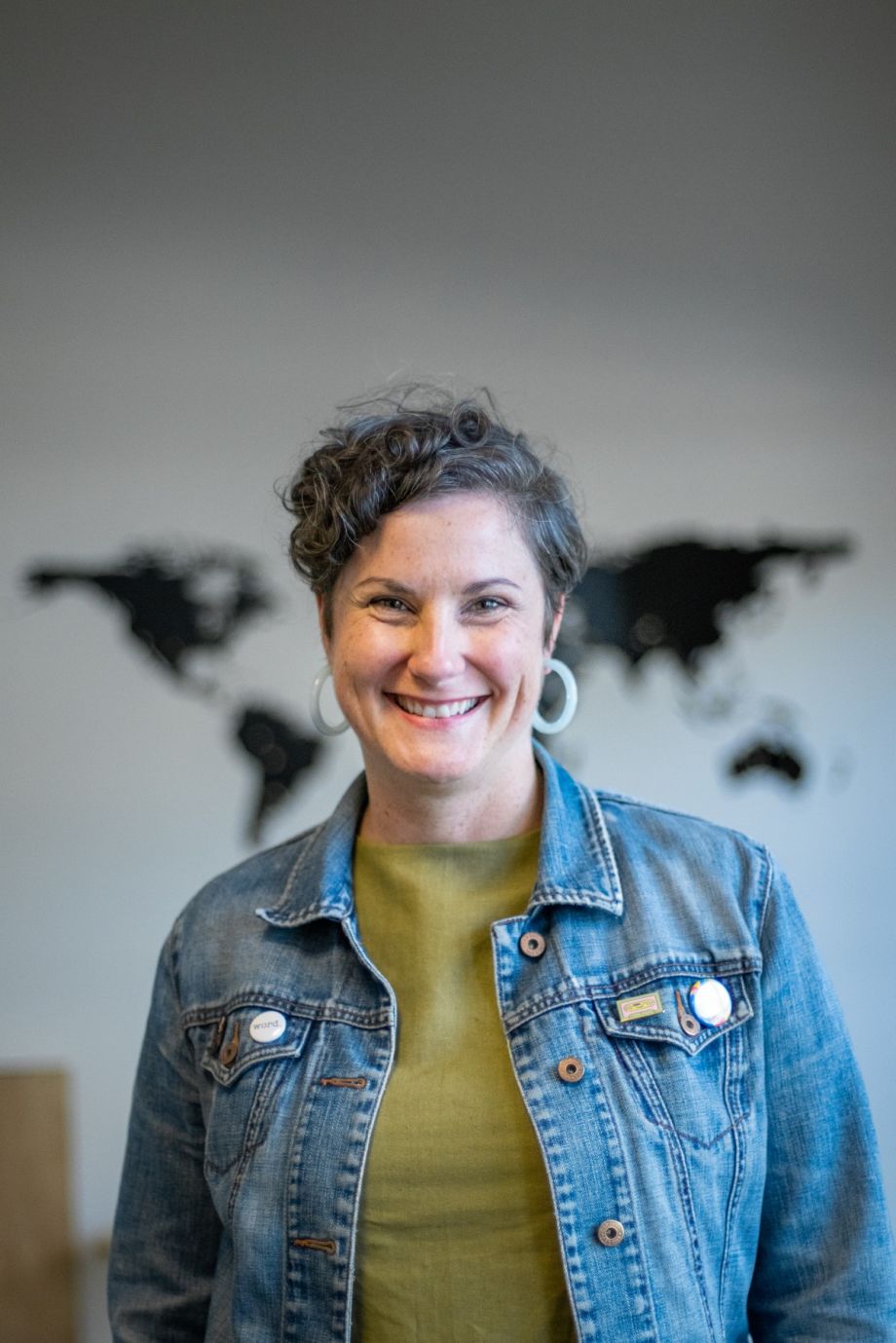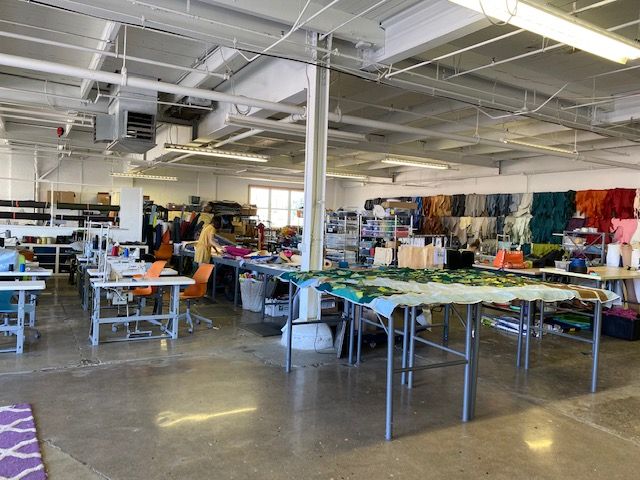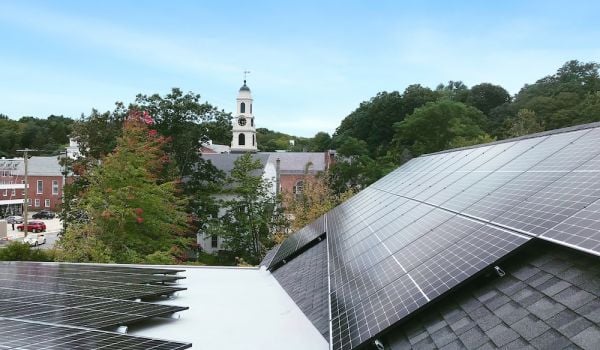A small bags and accessories shop in Grand Rapids, Michigan, is trying to be everything the modern textile industry is not. In place of endless waste, they repurpose recycled materials. They eschew overseas factories and hire local employees who they aim to pay a living, growing wage. And rather than implementing a totally hierarchical leadership approach, workers get a voice in everything from design to material choices. Most of their profit goes back to the workers, and, eventually, they will become worker-owned.
The shop—Public Thread—was started by Janey Bower, a former public policy city employee who sees buying one of their products as an investment in new systems that work for the people and the environment. Their most iconic bag, the “Billboard Bag,” is made out of used billboard materials. Each bag has a distinct look, like the materials they are made with.
“Just like in nature, there’s no such thing as waste,” Brower says. “When a tree dies, it becomes fuel for other things to grow. And that’s what we’re doing.”
Growing up in the Grand Rapids area and experiencing the public school systems in both the suburbs and the city, Brower witnessed stark racial and economic inequalities. She worked for the Grand Rapids government in public policy and later a nonprofit focused on homelessness, but eventually felt the nonprofit world often did not confront the roots of the problems they were trying to solve. Their strategies were “secondary systems,” explained Brower, offering a band-aid for the issues at hand.
She then pivoted to build Public Thread, with the intention of transferring what she learned from her nonprofit and policy work into physical form, creating systems change in a bag. Among her ambitious goals were a manufacturing process that positively impacts the environment and honors the makers, and a human-centered approach to business. Not wanting her workers to feel like a “cog in the machine,” Brower has plans for her team to collectively own the building they work in and eventually switch to being a fully worker-owned business. While not there yet, employees do have a say in all aspects, from wages to project timelines.
“They set boundaries about how they can make something,” Brower says.

Janay Brower, founder of Public Thread. (Photo courtesy of Janay Brower)
Right now, employees hired with not much experience may start at $15 to $17 an hour. Those with more experience can make up to $20. The long-term goal is for all employees to make $70,000 a year, with benefits. Of their eight employees so far, 50% are people of color. But throughout the peak of the COVID-19 pandemic, they temporarily grew to 25 employees, and together made 70,000 masks.
“We’re hoping that as we grow back up that we’ll grow sustainably so that we’re not in a situation with temporary work,” Brower says.
Funding from Northern Initiatives, a CDFI that supports local businesses in Michigan that build wealth within the community, came at this critical point in Public Thread’s timeline. After making masks through the pandemic, the company needed time to look for more partners and projects, and the money to pay for that freedom to explore.
“She has a real heart for community and she is intentionally hiring people of color and women into positions where they can help grow a business,” says Elissa Sangalli, CEO of Northern Initiatives.
In a world that wastes millions of tons of textiles, the Public Thread team isn’t yet satisfied with how much material they actually upcycle. The Environmental Protection Agency estimates that 16 million tons of textiles were generated in 2015; 10.5 million tons went to landfills, 3 million tons were incinerated and only about 2.5 million tons—about 15 %—were recycled. In Michigan alone, textiles only made up 2% of the recycling stream in 2014, according to the Department of Environmental Quality. So far, Public Thread has diverted more than 100,000 pounds of material from the landfill, and most of that is intercepted from local organizations’ waste cycles.
“I don’t know how to do it all and I’m not going to act like that’s my role,” Brower says. “That’s an oppressive system. I will help facilitate a system where we all get to share what we do know, and that is good enough… We have what we need, just like with our materials, we have with our staff everything that we need. It’s just a matter of being able to cultivate all of those ideas within each of us.”
This story is part of our series, CDFI Futures, which explores the community development finance industry through the lenses of equity, public policy and inclusive community development. The series is generously supported by Partners for the Common Good. Sign up for PCG’s CapNexus newsletter at capnexus.org.
Emily Rizzo, she/her, is a media maker and freelance journalist living in South Philadelphia. She mostly reports for Philadelphia’s member NPR station, WHYY, on education.





_920_518_600_350_80_s_c1.jpg)
_600_350_80_s_c1.jpg)









